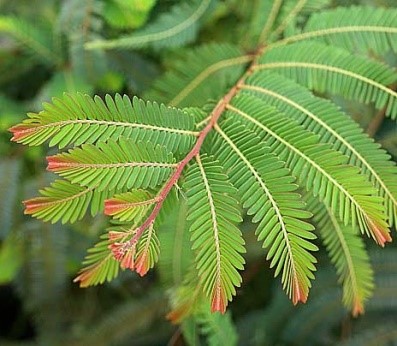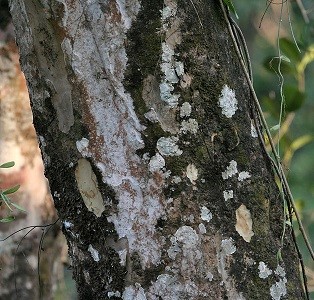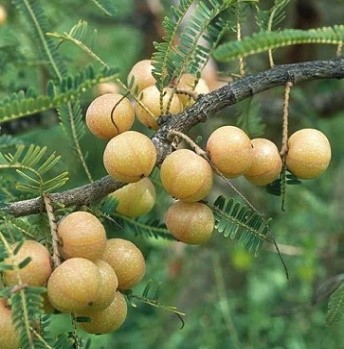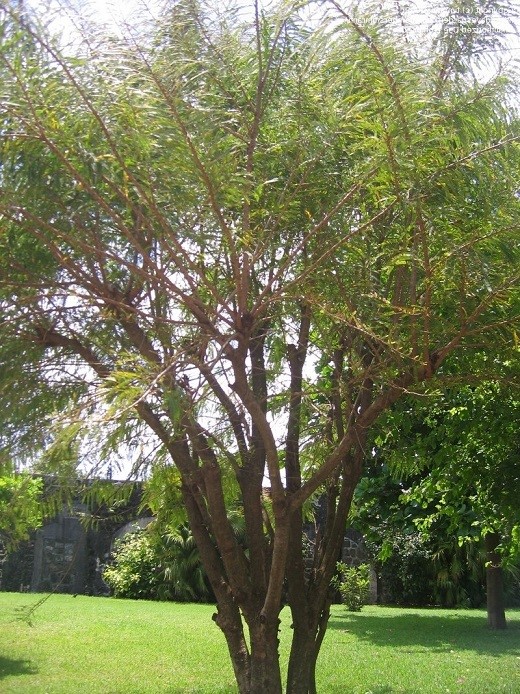Trees
Phyllanthus emblica Linn. (Emblica officinalis)
Phyllanthus emblica Linn. (Emblica officinalis)
Description :
A
medium-sized, deciduous tree, 25 to 33 m tall with diameters of 0.3 to 0.6 m.
The crown is large, oval and dense. The leaves are compound and look like
feathers. The leaflets are small, 0.5 to 1.6 cm long and 0.1 to 0.3 cm wide.
The bark is smooth, greenish grey and peels off in sheets. The flowers are
small almost inconspicuous, greenish yellow in color, appearing between March
and May. The fruit is small, round, fleshy, 2.5 cm in diameter, containing 6 seeds.
The fruiting period is June to February. It has no known insect or disease
problems of significance. It is reproduced both from seed and by vegetative
means. A moderately fast-growing tree. It has been reported that in 5 years, a
plantation will have an average diameter of 2.7 cm. At 40 years the same
plantations have an average diameter of 20.5 cm. Straight, closed grain having
red sapwood and strength is hard, strong, splits on drying, durable under water
with specific gravity of 0.7 to 0.8 and a calorific value of 5200 kcal 1/kg.
Distribution :
The
tree is native from the Indus in Pakistan east to South China. In Pakistan it
is planted in the plains and in gardens on both sides of the Indus. An
intolerant tree that grows on a variety of soils, but prefers deep, moist
alluvium. It can successfully be grown on alkaline or poor soils. It requires a
precipitation zone of 750 to 1200 mm/yr or more. It prefers a sub-humid
cool-warm sub-tropical monsoon climate with a temperature range of -5 to 40°C
at elevations up to 1800 m. It is susceptible to both frost and drought
conditions, especially when young and will coppice readily.
Uses :
This
tree has potential for use in farm forestry programs, especially in the Buner,
Hazara, Rawalpindi, and Jhelum area. The fruit is valuable. Also used as fuel,
furniture, construction, charcoal, fruit (200 kg from a 15-year-old tree),
medicinal (fruit is a laxative, diuretic, astringent), and pickles.



